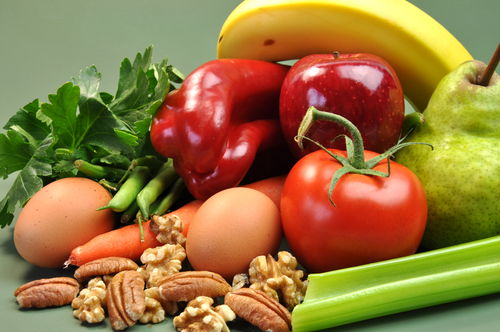
15 Nov Eating Real Food!
What is one life-threatening ingredient that has infiltrated almost all of our packaged foods? You’re right if you guessed high fructose corn syrup! Our foods have many additives, high fructose corn syrup (HFCS) is particularly prevalent. This is alarming because, as Dr. Robert Lustig, an endocrinologist at UC San Francisco asserts, it’s poison. Why does he say that?
In a chiding he gave titled” Sugar: The Bitter Truth,” he breaks down the numerous chemical reactions in the body to make clear how different sugars are processed. We have a rampant of obesity, heart disease, type 2 diabetes, and high blood pressure in
our country, and he thinks these are a direct result of our diet– specifically, the byproduct of consuming excessive sugar.
HFCS was developed in Japan in 1966, but it wasn’t sold in the United States until the mid-70s. Around that same time, there was a lot of problem involving the relationship between weight gain and heart disease. Because of this, there was a push toward a low-fat diet, the premise being that eating fat raises the levels of LDL (low-density lipoprotein– a fat protein) in the body. Here’s the real truth: not all fat is bad, and removing fat from our diet actually created a huge problem. Why? Because there are two kinds of LDL in your body, and only one of them is hazardous. Eating fat boosts the levels of high-density lipoprotein, and these aren’t bad for you. When the low-fat craze started and fat was removed from foods, it didn’t taste good. So … how did the food industry offset that lack in flavor? Sugar, of course!
Today, much of what we consume has HFCS in it: soft drinks, processed, packaged food, and any number of items from the drive thru at most fast food joints. The thing is: we might be satiating our hunger, but we’re also taking in something that’s really bad for our bodies.
Why? Well, for several reasons. It doesn’t induce insulin production when you put fructose in your body. Insulin production is what triggers leptin, the hormone responsible for helping your body register that it is no longer hungry. Without leptin, what do you do? Continue to eat! Also, the way that the liver processes fructose is completely different from how it handles glucose. When glucose is consumed, the majority of it is converted to energy that can be utilized by every cell in the body, and only a very small percentage of those calories end up as LDLs. When you consume fructose, a large chunk of those calories will end up in fat simply because of how the body chemically processes it. In a nutshell, we are regularly eating food that has HFCS init– an ingredient that, when processed by the liver, converts to a large percentage (30%!) of fat. And so what happens? We get fat.
Right about this point we’re certain you’re asking what HFCS has to do with the motorcoach industry. Well, we’re speaking about it because we are advocates of eating real food instead of processed food. And even though you likely think of charter bus rental Maine to travel and associate it with tour groups or family reunions, we’re here to tell you that we also offer culinary tours. One of the greatest hindrances to eating better is not knowing how to cook from scratch. The byproduct of that is that we end up eating a lot of processed junk– stuff that is literally harmful to the body.
So, by proceeding one of our culinary tours, you can sample fresh, real food, learn the best ways to make some yummy dishes, get culinary tips, and discover how to blend spices and different techniques to create delicious food. And it’s a win/win: you’ll have something delicious to make when you have friends come for dinner, and know, at the same time, that you’re eating something that’s healthier for you. Making food in your own kitchen is one way you can be sure to decrease your intake of high fructose corn syrup– because you can read labels and only use ingredients that don’t have that as an additive
Thus … here’s to eating real food, loving authentic, genuine flavor, and taking obligation for your health! Contact and schedule a culinary tour with us today!
The help and advice for this post originated from the following lecture given by Dr. Robert Lustig:


No Comments